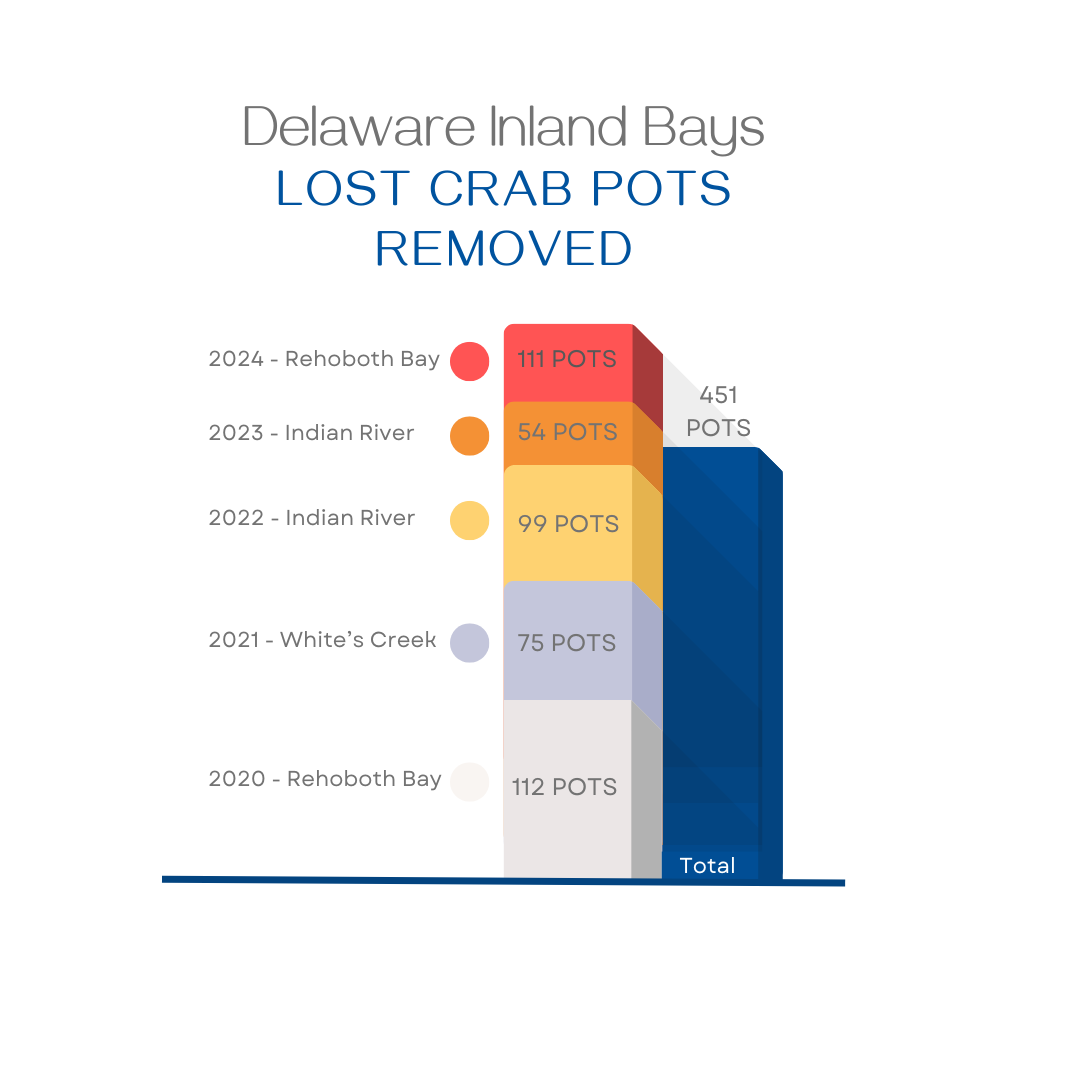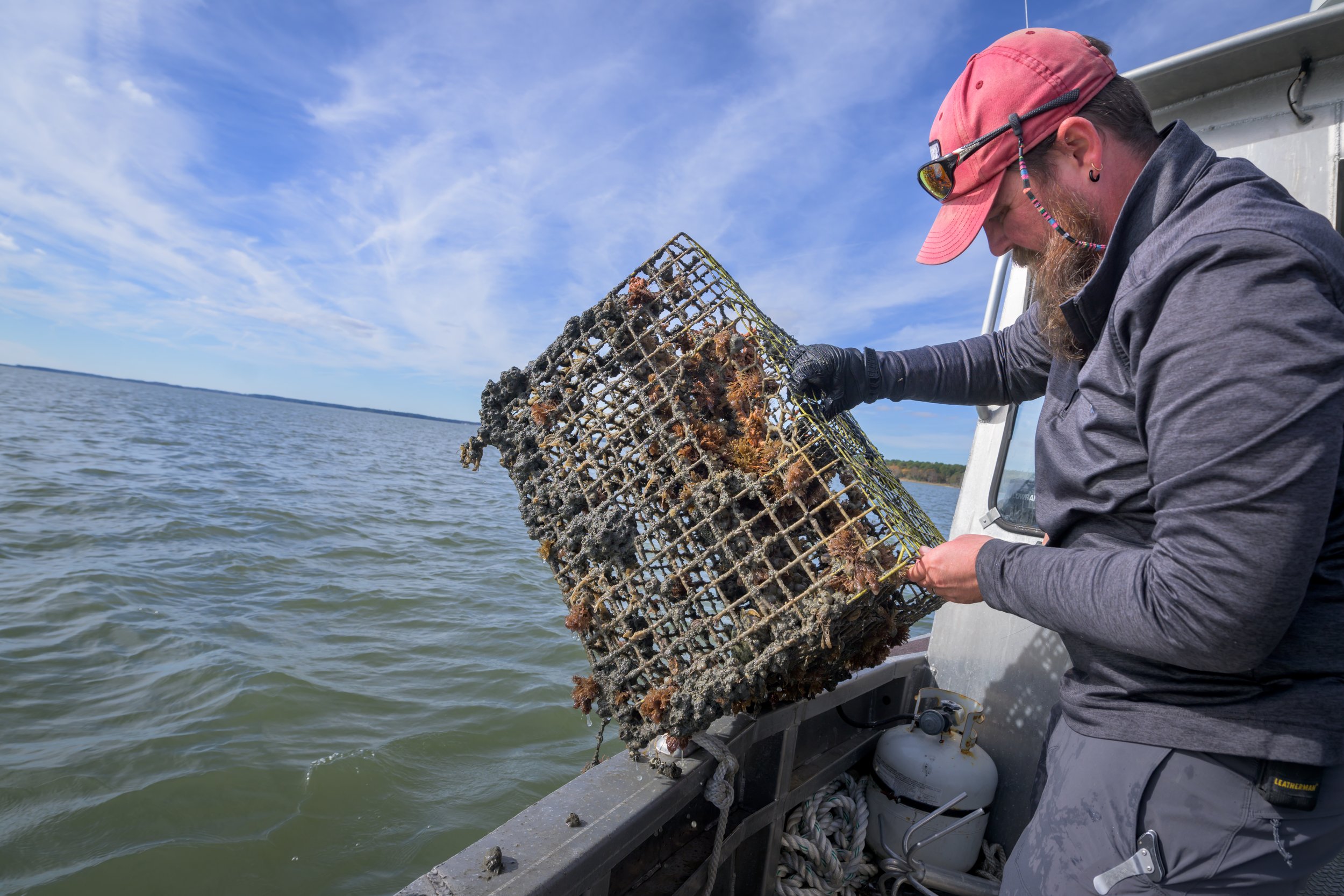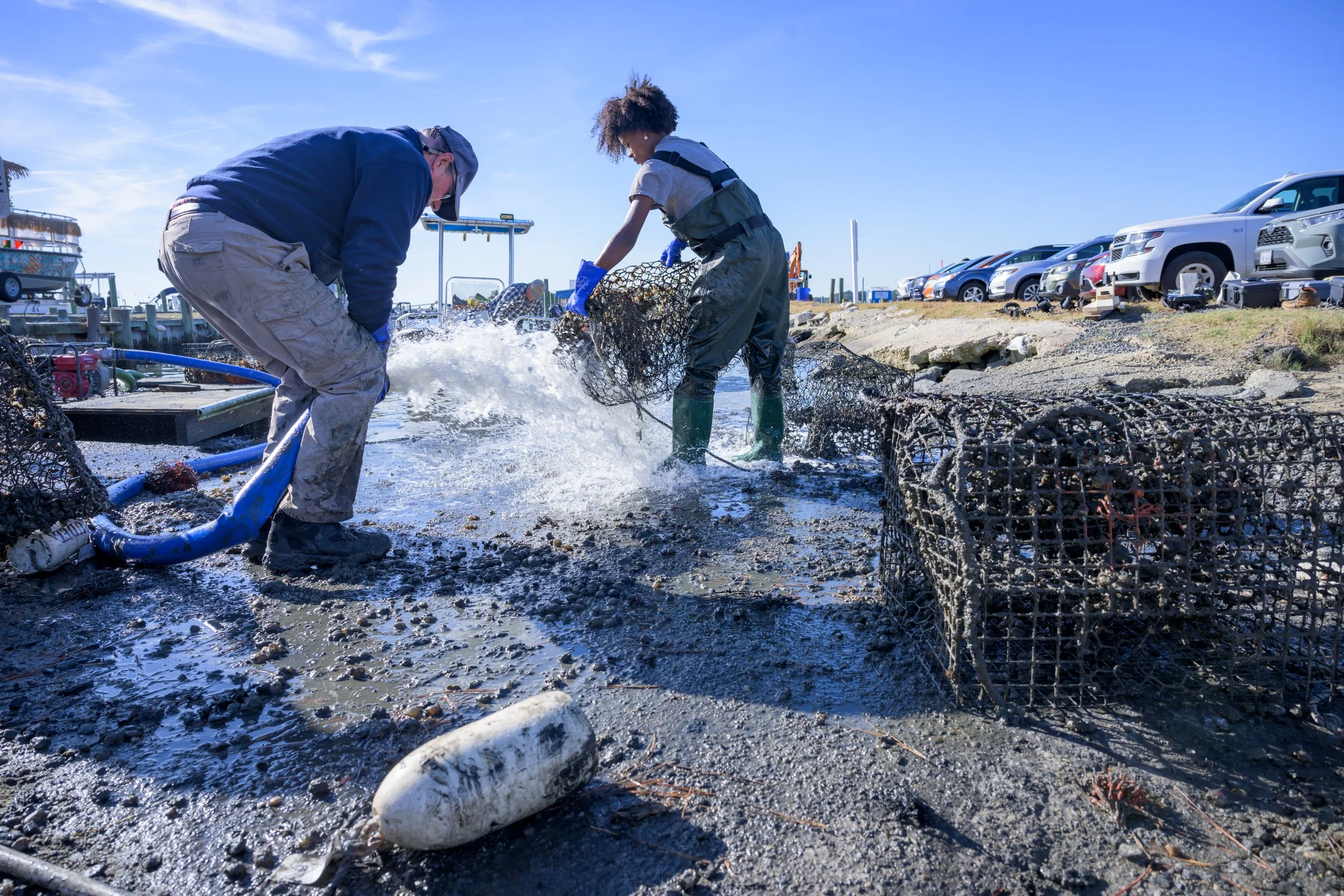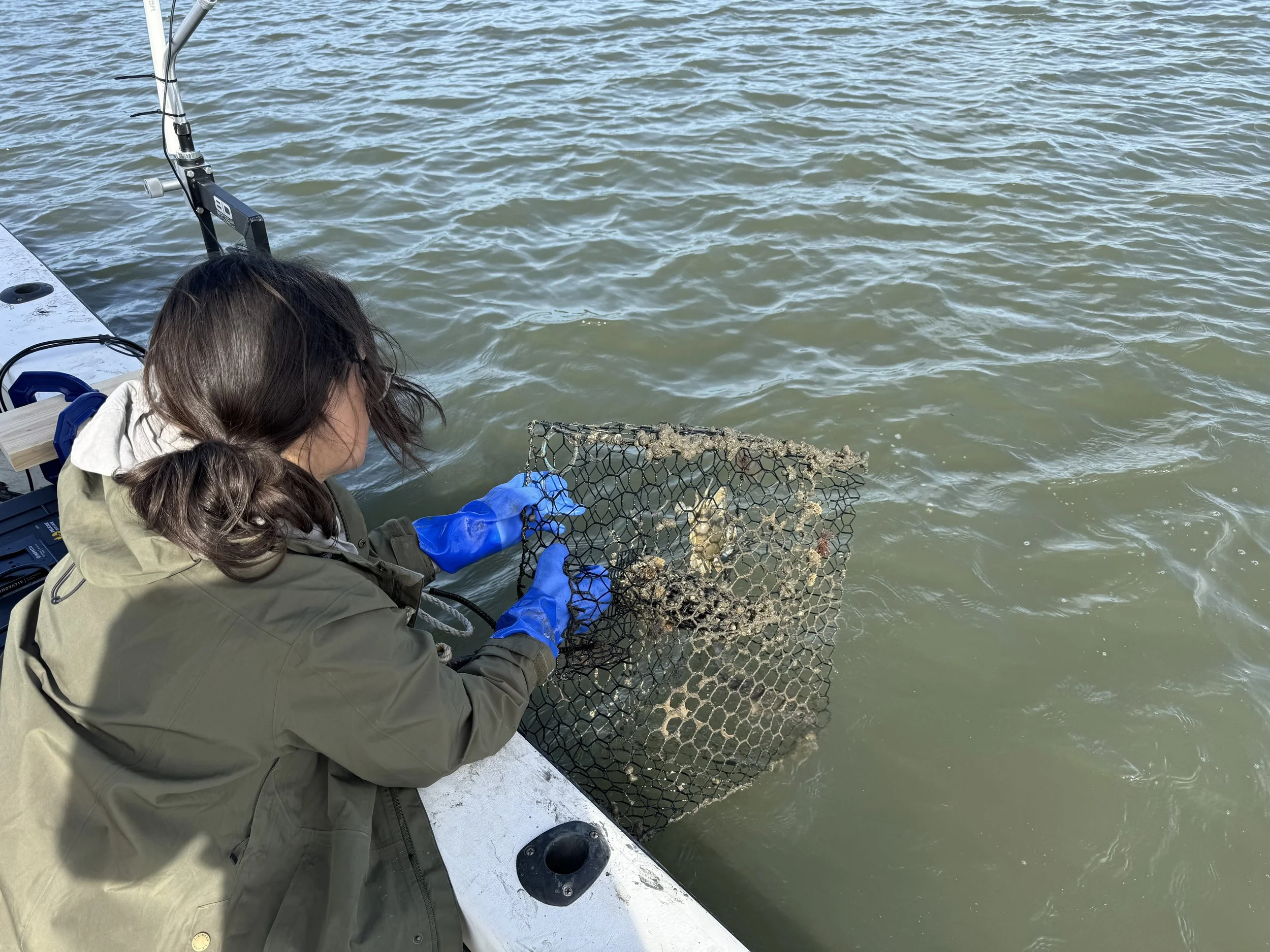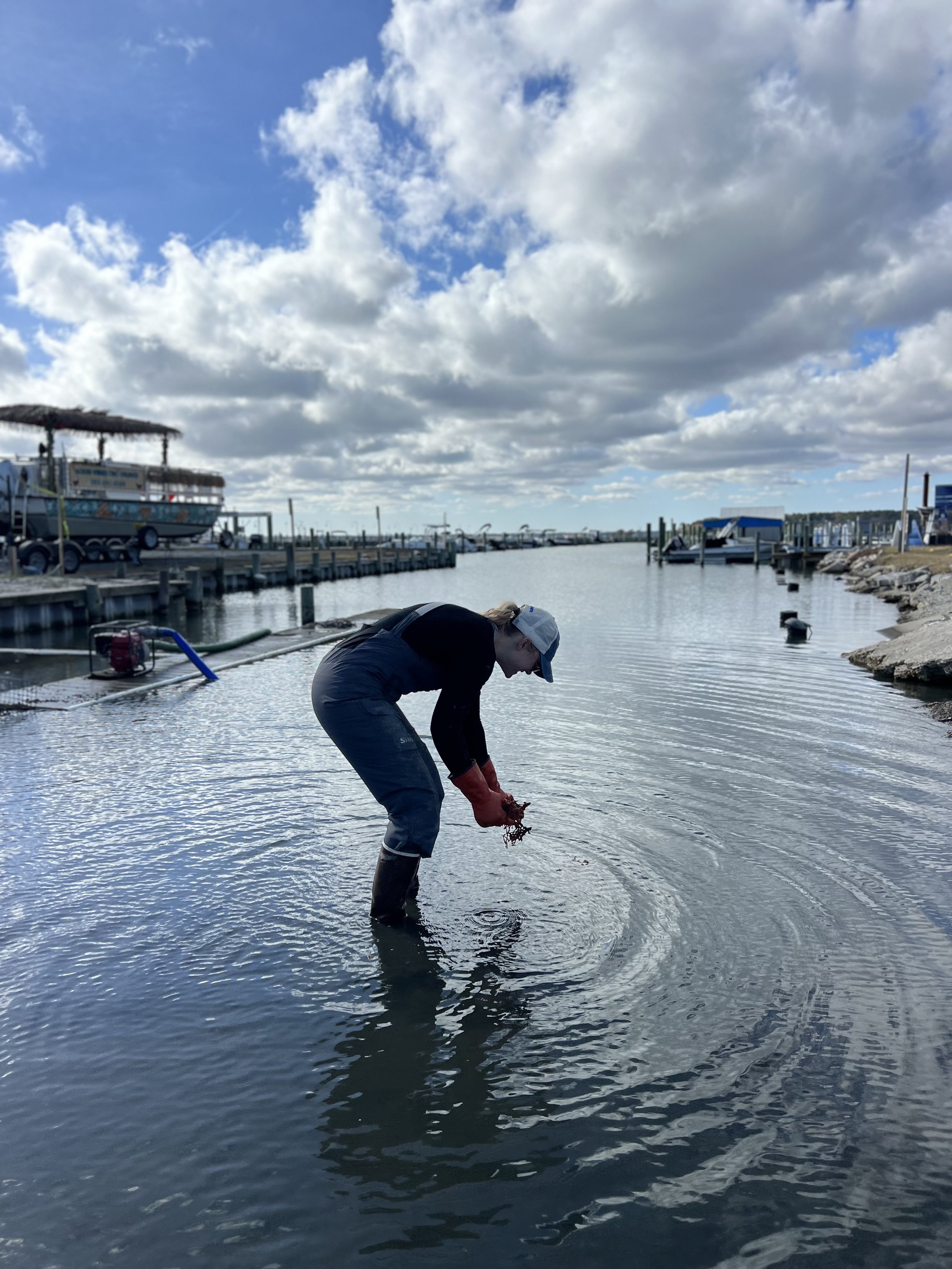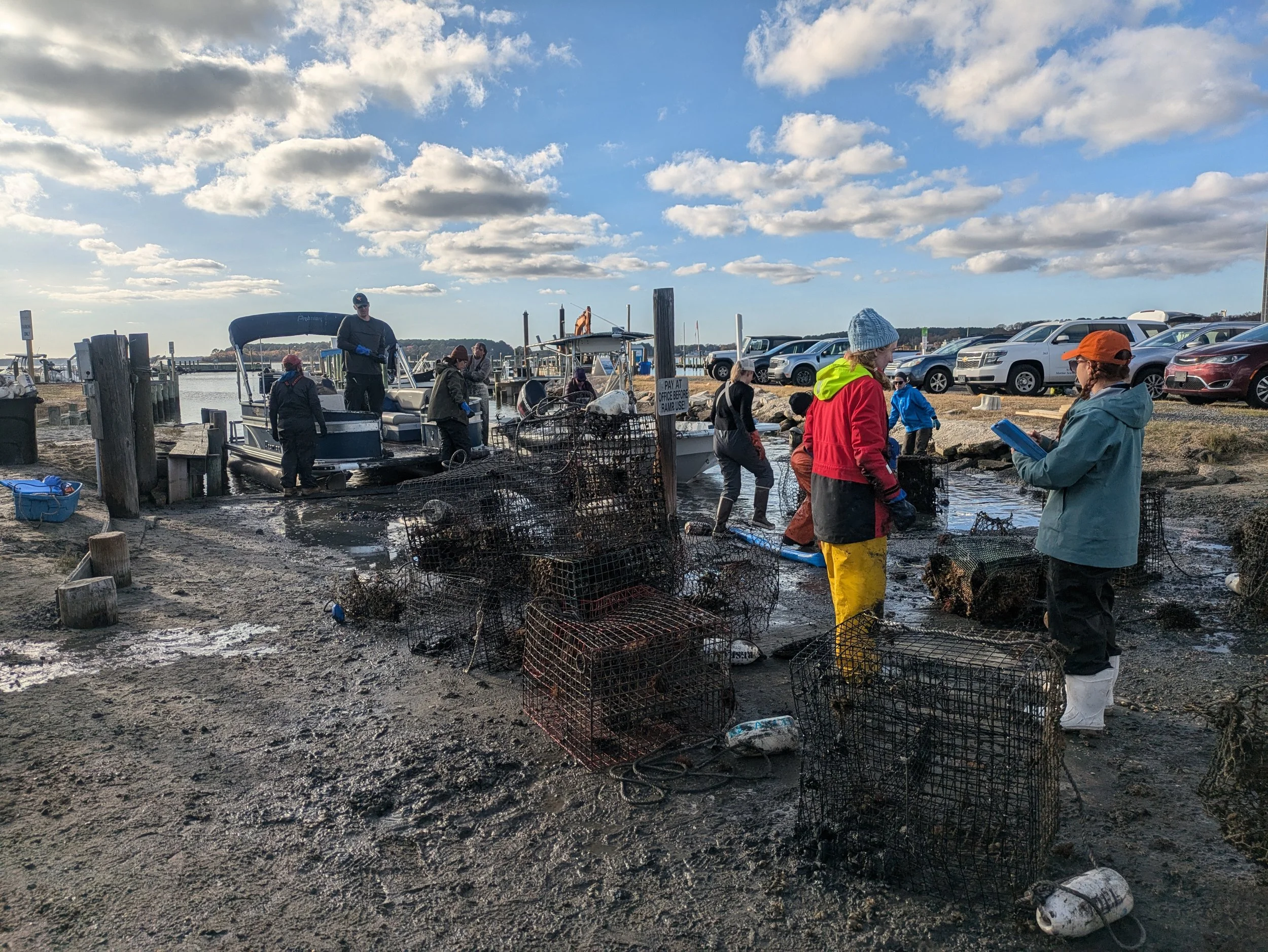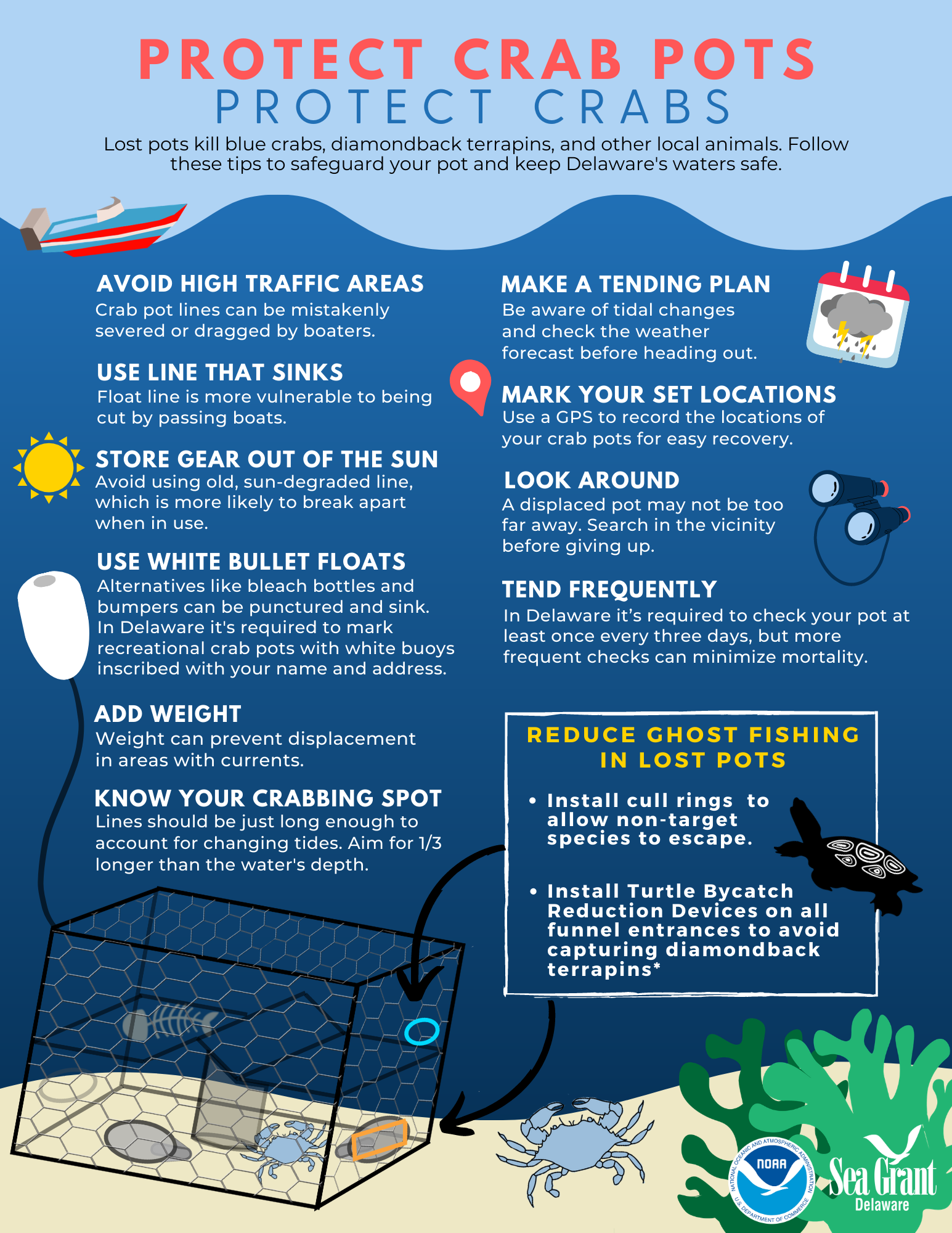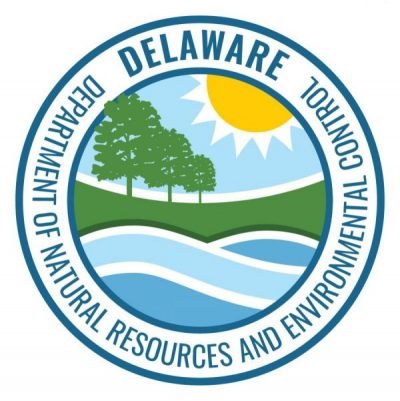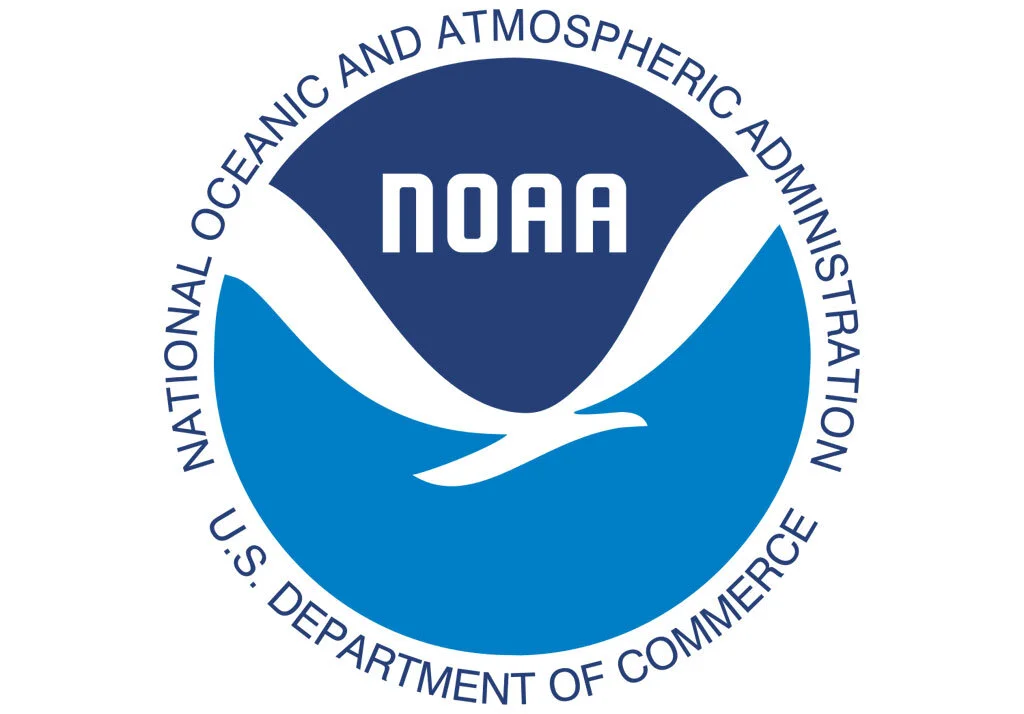Derelict Crab Pots
Investigating lost crab pots of Delaware’s Inland Bays
Number of lost crab pots removed during 1-2 day volunteer removal events.
The specter of ghost crab pots looms large in the waters of the Delaware Inland Bays. In addition to littering the seafloor, these derelict crab pots can cause damage to boat propellers and have the potential to ‘ghost fish,’ luring sea creatures into their midst and trapping them.
With funding from the National Sea Grant Office, Delaware Sea Grant and the CSHEL lab are collaborating with state and local partners and volunteers to not only remove derelict crab pots from Delaware’s Inland Bays, but to collect information on locally-relevant impacts.
Our team focuses on finding derelict crab pots that have become detached from their marker buoys using consumer-grade side-imaging fish-finders. We then work with volunteers to remove this marine litter using grappling hooks. Volunteers that bring and crew their own boats are trained to document pot status and instantaneous catch on board. Common species encountered in the pots are diamondback terrapins, blue crabs, and oyster toadfish. Pots are then transported to shore, where they are cleaned, weighed, and sorted for various recycled uses.
Crab pot check events
Interested in learning more about crab pot cleanup efforts or getting crab pots checked in your community? Contact Brittany Haywood at haywoobl@udel.edu to schedule a presentation or crab trap check event.
Volunteers needed!
Delaware Sea Grant is actively recruiting boaters interested in removing derelict crab pots in Delaware's Inland Bays for the 2024 season.
15 Second Science: Side-Scan Sonar
15 Second Science: Crab Pot Cleanup
Learn more about the program
2019 Recreational Crab Pot Abandonment Report
2021-2020 Recreational Crab Pot Abandonment Report
Derelict Crab Pots in Delaware’s Recreational Blue Crab Fishery (Wetland Monitoring & Assessment Program Blog)
Crab Pot Tips
Do you like to crab? Interested in trying it? Here are some tips to avoid losing your pot and inadvertently killing blue crabs and other animals like the diamondback terrapin.
Note: Installing Terrapin Excluder/Turtle Bycatch Reduction Devices (TBRD) on all funnel entrances is a legal requirement to fish a recreational crab pot. Learn more about TBRDs here.
Partners
Delaware Sea Grant coordinated this project with financial, logistical, and personnel support from the University of Delaware, DNREC, and the National Oceanic and Atmospheric Administration (NOAA). DESG would also like to acknowledge the support of Art Trembanis and the Coastal Sediments, Hydrodynamics and Engineering Laboratory (CSHEL).

